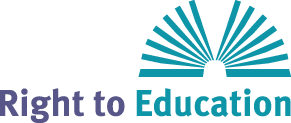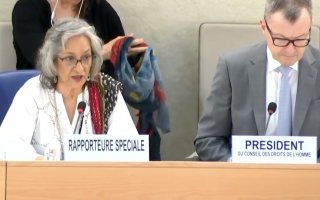In June 2025, at the 59th session of the UN Human Rights Council in Geneva, the UN Special Rapporteur on the right to education, Farida Shaheed, presented her thematic report on the right to be safe in education. She strongly urged States and other stakeholders, ‘to recognise the right of everyone to be safe in education as an integral element of the right to education’.
Her report specifically focuses on safety in education outside of emergencies, highlighting various dimensions of safety issues: physical, psycho-emotional, social, and digital. She emphasised that these aspects need to be addressed ‘in all formal, non-formal, and informal educational settings, including homeschooling, at all levels of education, from early childhood care and education to higher education, and education throughout life.’
While the report primarily focuses on safety outside of emergencies, Ms. Shaheed also mentioned how her mandate addressed attacks on educational institutions driven by ‘political, military, ideological, sectarian, ethnic, religious, or criminal motives, targeting students, educators, and institutions alike.’ She mentioned joint communications and press releases that have addressed a range of safety concerns in education, including the scholasticide in Gaza and the storming of UNRWA schools, the destruction of schools in Ukraine and Pakistan, gang violence in Haiti, and reprisals against students and education staff in the USA. She informed that her next report to the UN General Assembly will focus on education during armed conflict.
Furthermore, referencing UNESCO 2023 data, Ms. Shaheed pointed out that corporal punishment remains lawful in 63 countries, affecting approximately 793 million school-age children who live in countries where it is not fully prohibited. In light of this, she called for the prohibition of institutionalised violence and an end to institutional discrimination, highlighting their interconnectedness. She specifically noted that the removal of protection against discrimination is a major contributor to institutional discrimination, particularly impacting girls, women, and children with disabilities.
In her presentation, the Special Rapporteur raised concerns about various safety issues and in particular she drew the attention on: the use of facial recognition technology to capture, extract, store, and share biometric facial data; the surveillance of learners and educators in physical and digital spaces; the disproportionate and excessive use of force against student demonstrators, including suspensions, expulsions, and the dismissal of academics who expressed solidarity with civilians in Gaza; the reported increase in antisemitism in universities and hate speech.
Recalling States to ensure the right of learners, educators and non-teaching staff to be protected in all spaces, she emphasised that ‘all dimensions of education foster an environment in which everyone feels and is safe, including education content, disciplinary rules, practice and governance, the pedagogical and teaching methods. All must align with the aim of the right to education under international human rights law.’
She further added that 'States should ensure that all human rights are respected within educational settings’
The other key recommendations include adopting a ‘whole-school approach’, upholding academic freedom, banning facial recognition tools in educational institutions, ending institutional violence and discrimination, training teachers on child rights and non-violent disciplinary methods and providing physical and mental health services to address the root causes of violence.
The Special Rapporteur also presented her Country Visit report to the United States of America. While acknowledging the role of courts and access to education and the diversity of educational pathways, she highlighted challenges such as growing privatisation trends, attacks on academic freedom, and the need to focus on equitable funding, child protection, and revising assessment systems.
During the interactive dialogue, a vast majority of the States endorsed the UN Special Rapporteur's report, reaffirming that the right to be safe is a prerequisite for the full realisation of the right to education. Most Dtates expressed concern about the ongoing attacks on educational institutions, in particular in the Palestinian territory. States also shared their efforts to promote safety in education and emphasised the need to adopt and implement the Safe School Declaration and follow the guidelines provided in the Comprehensive School Safety Framework 2022.
Read her report here.
Watch the recording of her presentation here (from 02:10:00) and the continuation here

